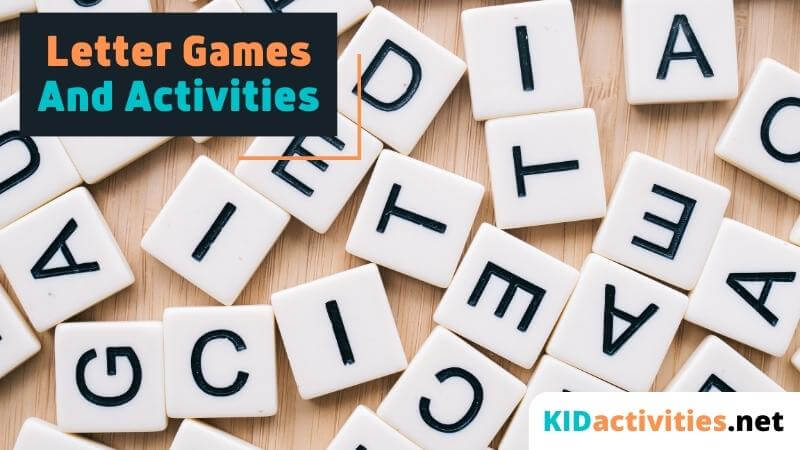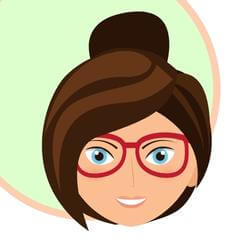Letter games and activities can be an effective and enjoyable way to help children develop their language and literacy skills.
These activities are designed to be both educational and entertaining, providing children with opportunities to learn about letters, words, and the sounds they make.
The games can also help children build their:
- Vocabulary
- Increase their reading speed and comprehension
- Improve their spelling abilities.
With so many different letter games and activities available, there is something to suit every child’s learning style and interests.
These activities are suitable for children of all ages, from toddlers just starting to learn the alphabet to older children who are becoming confident readers and writers.
They can be adapted to different levels of difficulty, making them a great way to encourage children to continue learning and growing as they grow up.
In addition, letter games are a great way for families to spend time together and have fun while supporting children’s learning.
Whether children are playing a letter-based board game, solving a word puzzle, or participating in a spelling bee, they are actively engaging with language and building their literacy skills.
The interactive nature of these games and activities helps children to learn in a way that is both enjoyable and memorable, making them more likely to retain the information and skills they are learning.
So if you’re looking for a fun and educational way to help your child develop their language and literacy skills, look no further than our list below.
List Of Letter Games and Activities
1. Hangman
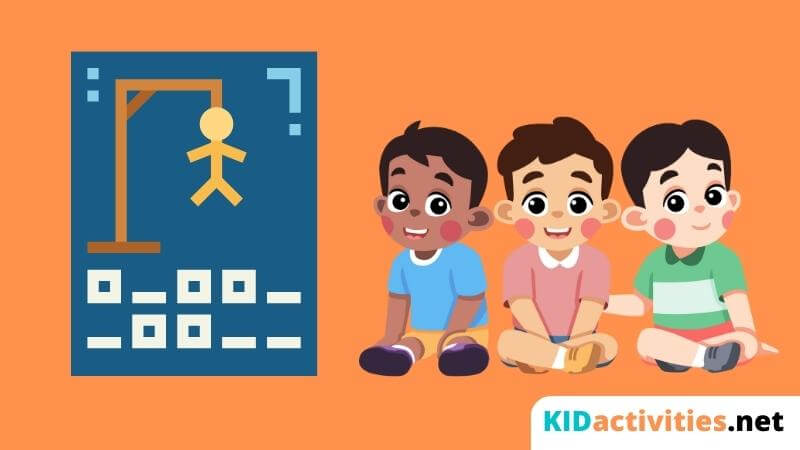
Hangman is a classic letter-guessing game that is enjoyed by people of all ages. The game is played by one player who thinks of a word and another player who tries to guess it by suggesting letters one at a time.
For each incorrect guess, a stick figure is drawn, eventually forming a “hangman” if the word is not correctly guessed in time.
The word can be any word of the player’s choosing, and the number of incorrect guesses allowed before the hangman is completed can vary.
To play Hangman, you will need a piece of paper and a pen or pencil. The player who thinks of the word writes it down on a piece of paper and leaves spaces for each letter.
The other player then takes turns suggesting letters. If the suggested letter is in the word, the player who thought of the word writes it in the correct spaces.
If the letter is not in the word, the hangman is drawn. The game continues until the word is completely guessed or the hangman is completed.
Hangman is a fun and educational game that can help children improve their vocabulary and spelling skills.
It is also a great way to encourage children to think creatively and use their problem-solving skills.
Whether you’re playing with friends, family, or classmates, Hangman is sure to provide hours of fun and learning.
2. Bogle
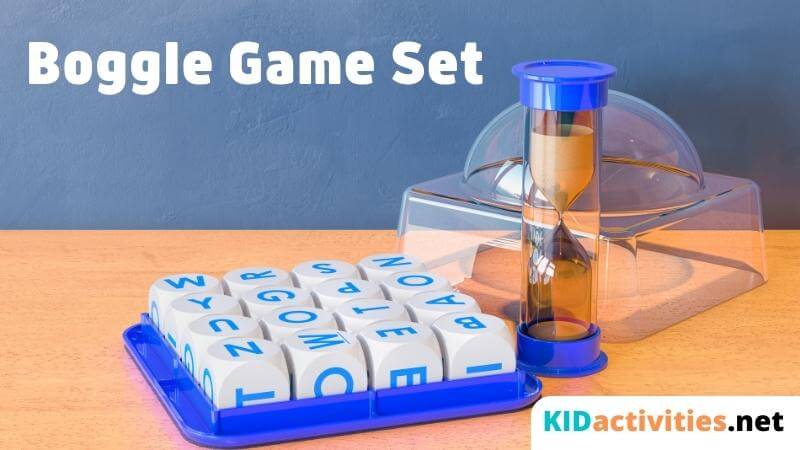
Boggle is a word game that is played using a grid of letter dice. The goal of the game is to find as many words as possible within a set amount of time.
The words can be made by connecting adjacent letters vertically, horizontally, or diagonally.
To play Boggle, you will need a Boggle game set, which typically consists of a plastic cube with letter dice inside and a timer.
The cube is shaken to randomly arrange the letter dice, and the timer is set for a specified amount of time (usually three minutes).
Players then race to find as many words as they can within the time limit. The participant with the most words at the end of the time wins.
Boggle is a great game for improving vocabulary, spelling, and language skills, but it also helps to develop pattern recognition and problem-solving abilities.
3. Scrabble
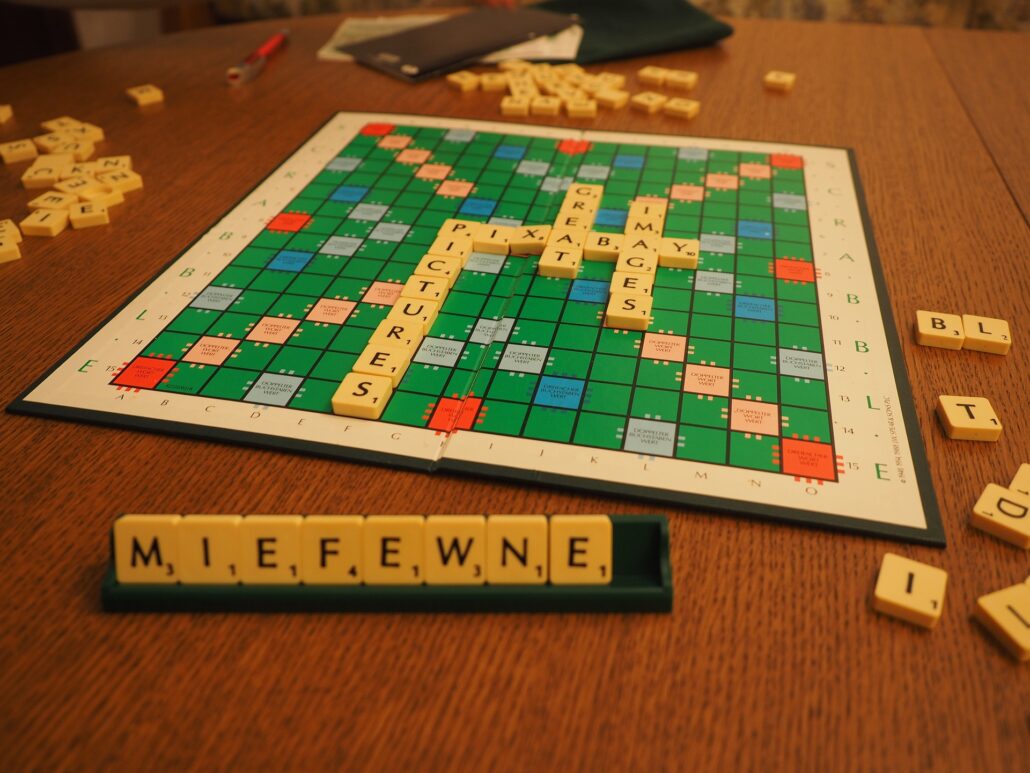
Scrabble is a popular word game that is played using tiles with letters on them.
The goal of the game is to score points by creating words on a game board. Points are awarded based on the length of the word and the value of the letters used.
To play Scrabble, you will need a game board, tiles with letters on them, and a tile rack for each player. The tiles are placed on the board to form words, with each tile placed on a crossword.
Points are scored for each word based on the length of the word and the value of the letters used.
The game continues until all tiles have been used or a predetermined number of rounds has been completed. Whoever has the highest score at the end wins the game.
Scrabble is an enjoyable and educational game that enhances vocabulary, spelling, and language skills while also promoting strategy and critical thinking. Scrabble is sure to provide hours of fun and mental stimulation.
4. Cross-word Puzzles
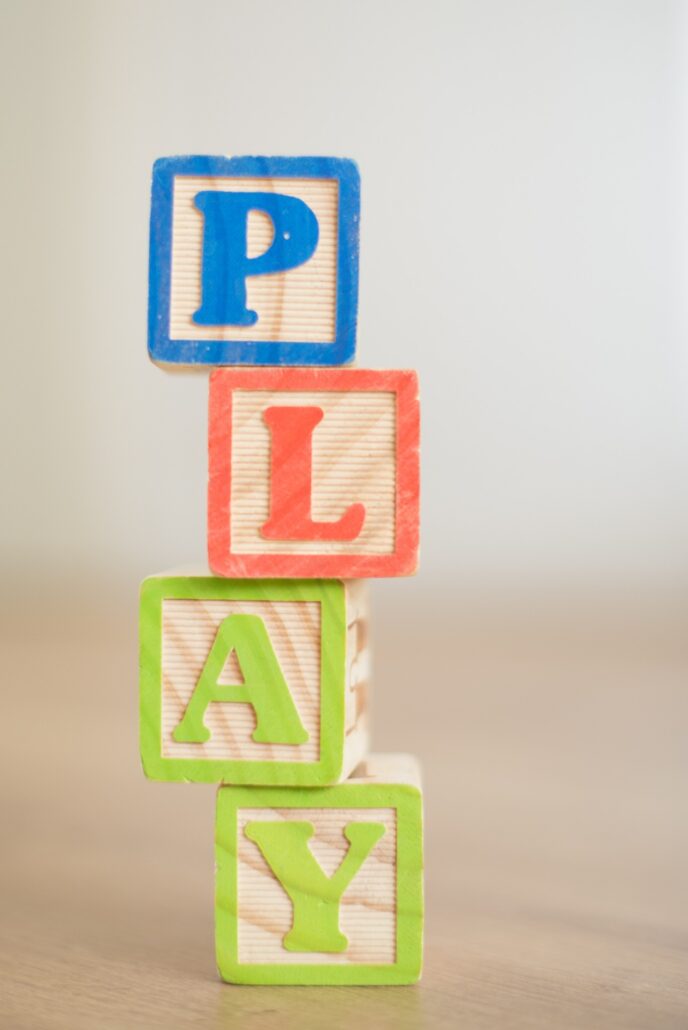
Crossword puzzles are word games that consist of a grid of squares and clues for each word. The goal is to fill in the squares with words that fit the clues provided.
Crossword puzzles can range in difficulty from easy to challenging and are a great way to improve vocabulary, spelling, and language skills.
They can be completed alone or with a group, making them a fun and interactive activity for individuals or groups of all ages.
Whether you’re a seasoned crossword solver or just starting, crossword puzzles are a great way to challenge your brain and improve your language skills.
5. Alphabet Bingo
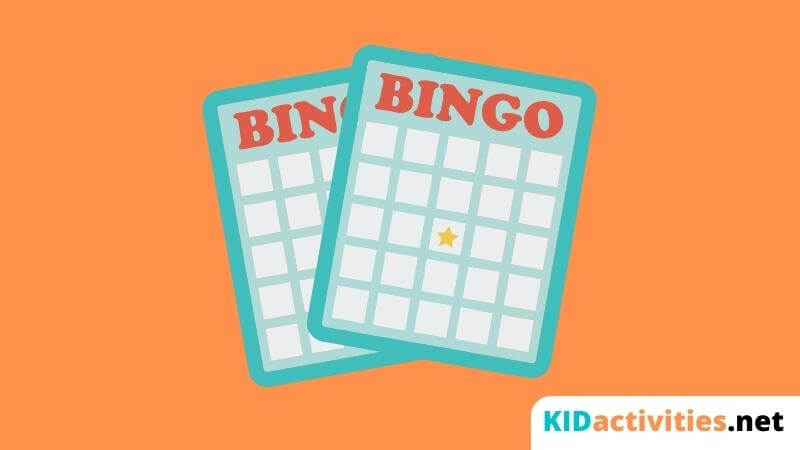
Alphabet Bingo is a fun and educational game for kids that helps them learn the alphabet and improve their vocabulary.
The game is played with a bingo card containing letters of the alphabet and a set of letter cards.
Players take turns drawing a letter card and matching it to the letters on their bingo card. The first player to match all the letters on their card wins.
Alphabet Bingo offers a delightful and interactive approach for children to master the alphabet and expand their vocabulary.
Suitable for various ages and abilities, it makes a fantastic activity for families and classrooms.
The game is easily customizable and can be played alone or with a group, making it an adaptable and entertaining option for individuals or groups of any size.
6. Word Search
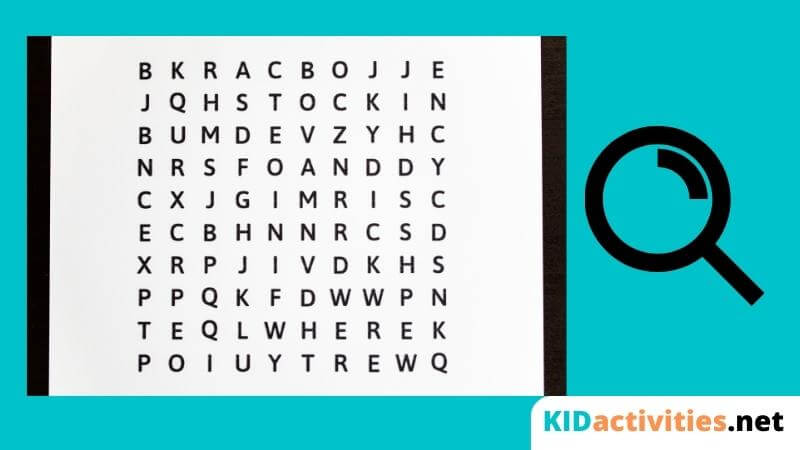
Word search is a popular word game where players search for words hidden in a grid of letters.
The words can be arranged in any direction, vertically, horizontally, or diagonally.
The goal is to find all the words within a set amount of time. Word search is a fun and educational game that helps improve vocabulary and spelling skills, as well as hand-eye coordination.
This game is a great way for individuals of all ages to challenge their language skills in a fun and engaging way. It can be played alone or with a group, making it a versatile option for individuals or families.
Word search is also a great way to exercise the brain and improve concentration, making it an ideal activity for students or anyone looking to improve their cognitive abilities.
Whether you’re a seasoned word search player or just starting out, this game is sure to provide hours of fun and mental stimulation.
7. Jotto
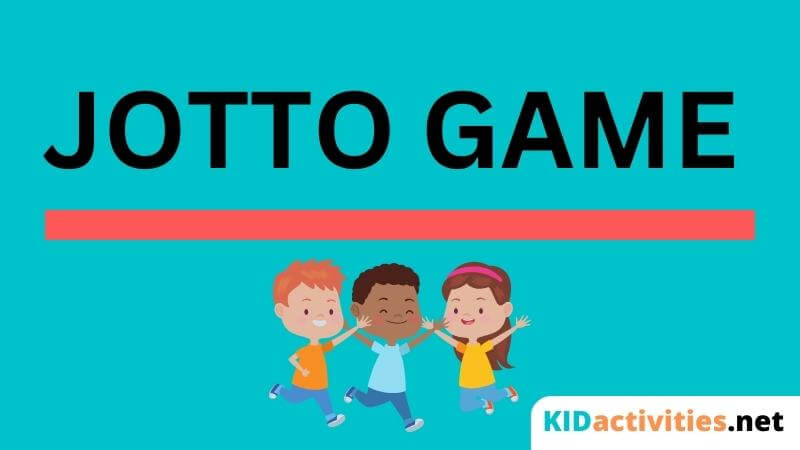
Jotto is a word-guessing game where two players try to guess each other’s secret words. One player chooses a word and provides hints to the other player, who tries to guess the word based on the hints.
The game continues until one player correctly guesses the other player’s word. Jotto is a fun and educational game that is sure to provide hours of entertainment.
Additionally, Jotto can be played with a variety of different word lists, making it a versatile option for players of all ages and skill levels.
8. Ghost

Ghost is a word-guessing game where two or more players take turns adding letters to form a word.
The game continues until one player completes a word or until it’s clear that a word can’t be formed.
The player who completes a word loses the round, and the player who loses a set number of rounds is declared the loser of the game.
Ghost is an enjoyable and stimulating game that sharpens vocabulary, spelling, and language abilities.
It promotes strategic thinking and critical problem-solving skills. Whether playing with friends, family, or classmates, Ghost is an easy-to-play and entertaining game that promises hours of fun.
With a range of word lists to choose from, it can be adapted to suit players of different ages and skill levels.
9. Charades
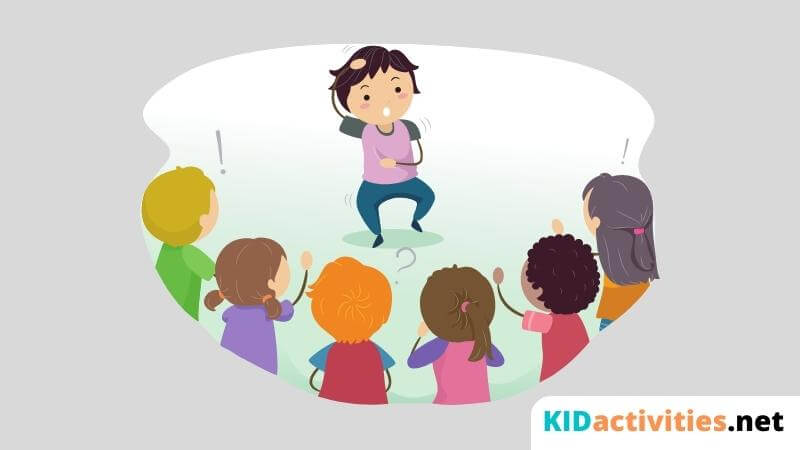
Charades is a guessing game that requires players to act out words or phrases without speaking, while the other players try to guess what they’re portraying.
The game can be played in a variety of categories, including movies, books, songs, and more.
To play Charades, players are divided into two teams. One player from each team is selected to act out a word or phrase, while the other players on their team try to guess what they’re portraying.
Players can use gestures, movements, and facial expressions to act out the word or phrase. The team with the most correctly guessed words or phrases at the end of the game wins.
Charades is a fun and entertaining game that is great for improving communication skills, creativity, and teamwork.
It is also a great way to bring people together, whether playing with friends, family, or classmates. Charades can be played with players of all ages and skill levels, making it a great option for groups of all sizes.
10. Word Ladder
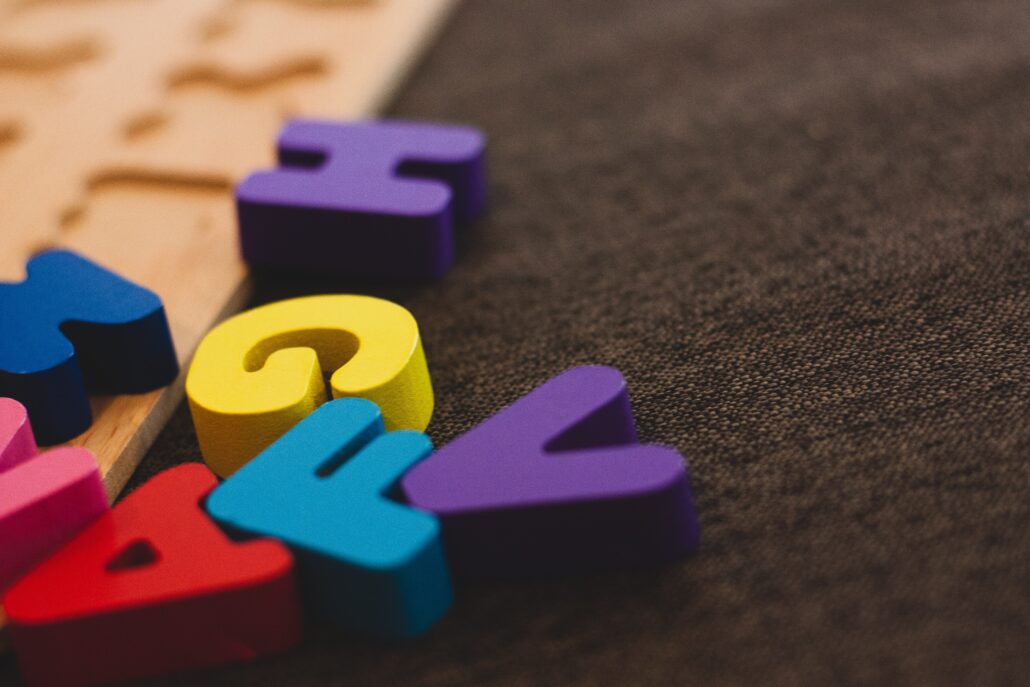
Word Ladder is a word-guessing game that challenges players to change one word into another by changing only one letter at a time.
The objective of the game is to reach a target word, usually with a specific number of steps, by making a chain of words that are related to each other.
For example, starting with the word “cat,” the target word might be “dog,” and the steps could be: “cat,” “cot,” “cot,” and “dog.”
Word Ladder is a challenging game that can help improve your wording, spelling, and language abilities, as well as your strategic and critical thinking skills.
It’s a great game to play with friends, family, or classmates and is easy to understand, making it a fun activity for people of all ages and skill levels.
Additionally, Word Ladder can be played using different word lists, making it a versatile option for individuals or groups.
11. Alphabet Soup
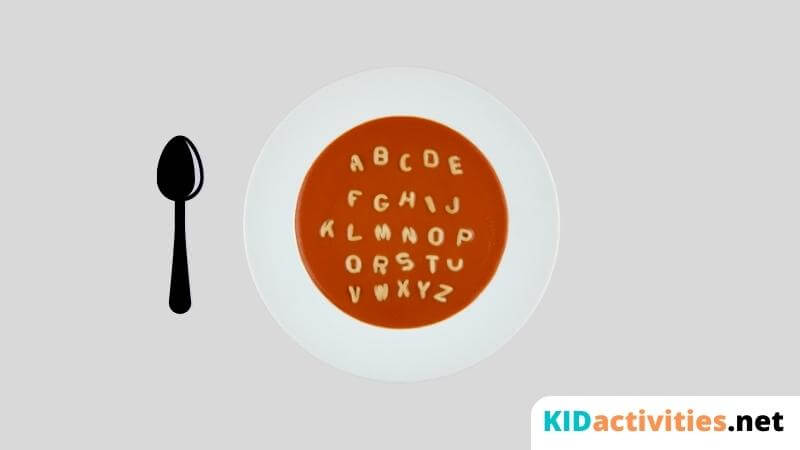
Alphabet Soup is a word-finding game that involves finding words hidden in a grid of letters.
The objective of the game is to find as many words as possible in a given time frame, or until all the words have been found.
The words can be found horizontally, vertically, diagonally, and in reverse.
Playing Alphabet Soup can help improve vocabulary, spelling, and language skills, and also encourages critical thinking and problem-solving abilities.
The game can be played alone or with others, and can be adapted to different ages and skill levels, making it a versatile option for families and classrooms.
It is also a great option for individuals or groups of all sizes, as it is simple to understand and play.
In addition, Alphabet Soup can also be used to reinforce language skills and support learning in other subjects, such as history and geography, by using subject-specific word lists.
Overall, Alphabet Soup is a fun and educational activity that can be enjoyed by people of all ages and skill levels.
12. Spelling Bees
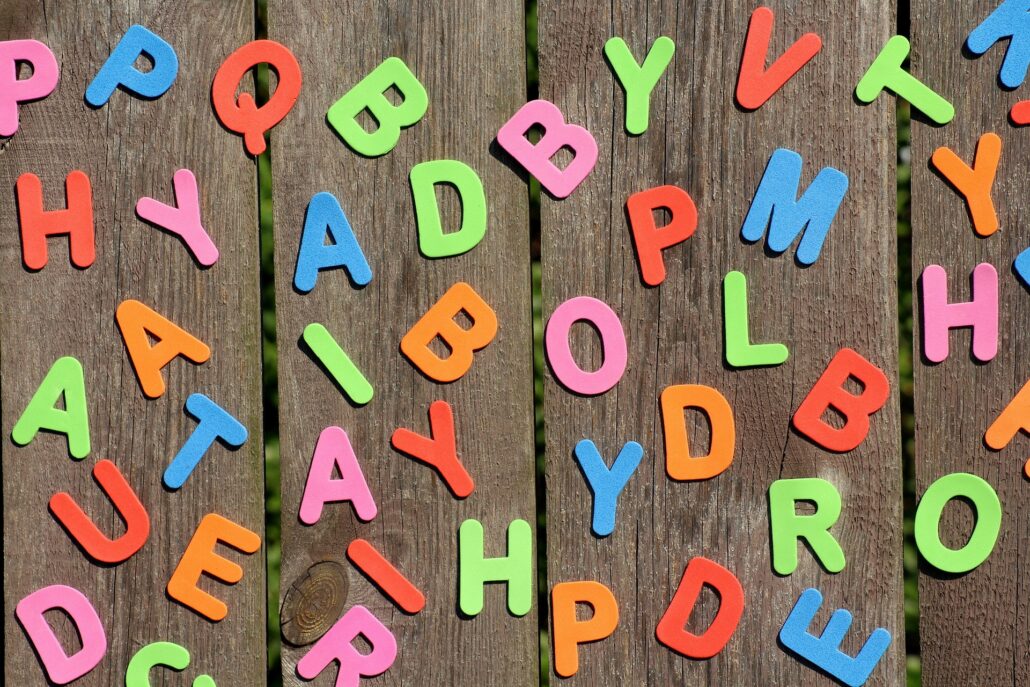
Spelling bees are competitive events where participants are tested on their spelling abilities.
In a typical spelling bee, participants take turns spelling words, and if a participant spells a word incorrectly, they are eliminated.
The last person standing who has spelt all their words correctly is declared the winner.
Spelling bees are a great way to improve vocabulary, spelling, and language skills, and they also help to develop confidence and public speaking abilities.
Spelling Bee competitions can be held in schools, community centres, and other organizations and are a fun and educational activity for individuals or groups of all ages and skill levels.
Spelling bees can be organized in various formats, including individual and team competitions.
The words used in a spelling bee can vary depending on the level of competition, with easier words for younger participants and more challenging words for older participants.
Some spelling bees also include written rounds, where participants take a written test of spelling words.
In addition to being a fun and educational activity, spelling bees also help to develop critical thinking and problem-solving skills, as participants must think carefully about the spelling of each word they are asked to spell.
They also help to build confidence, as participants must stand in front of an audience and spell words out loud.
Overall, spelling bees are a great way to improve language skills and challenge oneself.
13. Typing Games

Typing games are computer-based games that are designed to help improve typing speed and accuracy.
These games typically involve typing words, phrases, or sentences as quickly and accurately as possible.
They can be a fun and engaging way for people of all ages to improve their typing skills and are a great activity for individuals or groups of all sizes.
Typing games can be played on a computer or tablet, and they are often designed with different levels of difficulty to challenge players of all skill levels.
Some typing games are designed to be fast-paced and intense, while others are more relaxed and allow players to take their time.
In addition to improving typing speed and accuracy, typing games can also help to develop other skills, such as hand-eye coordination, memory, and concentration.
They are a great way for individuals to challenge themselves and for groups to engage in friendly competition.
Whether playing for fun or as a learning tool, typing games are a fun and educational option for individuals and groups of all ages and skill levels.
14. Letter Tracing
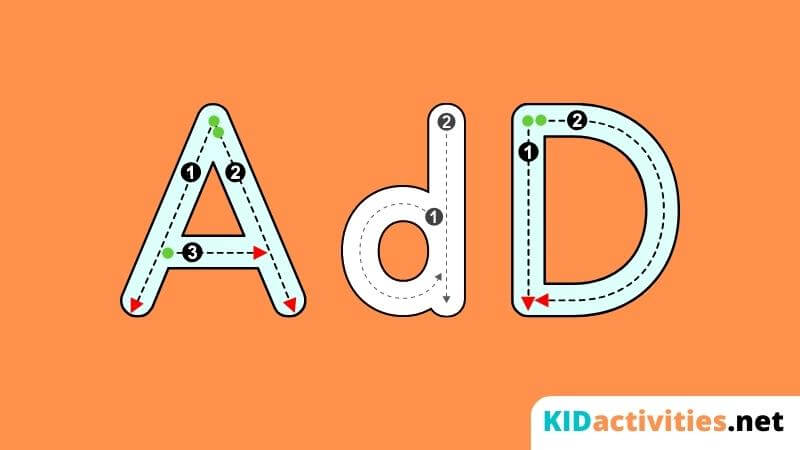
Letter tracing is an educational activity that helps children learn to write letters of the alphabet.
The activity involves tracing the outline of letters using a pencil or pen, typically starting with basic letters and progressing to more complex ones as the child’s skills improve.
Letter tracing is often used as a tool to teach young children the basic forms of letters and improve their fine motor skills.
It can also help improve their hand-eye coordination and dexterity, as well as support the recognition and formation of letters.
Letter tracing can be done on paper or with special letter tracing worksheets, and it can also be incorporated into interactive and digital games and activities.
It is a fun and engaging way for children to learn and practice the basics of writing letters and is often used as a tool in the classroom or at home.
Whether used for learning or fun, letter tracing is a valuable activity for children of all ages.
15. Word Match
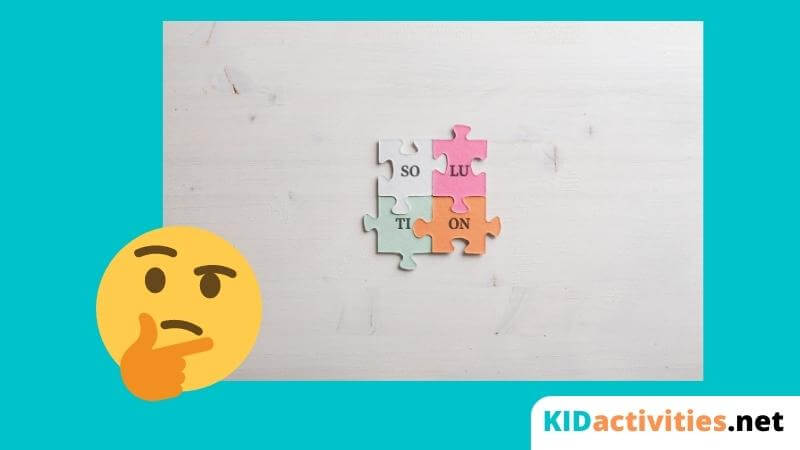
Word Match is a fun and scholastic game that helps enhance language, spelling, and terminology skills.
It can be played alone or with a group, making it an adaptable option for individuals or families.
The game consists of a set of words that are related to a specific category, such as animals, food, or sports.
Players must match the words with their definitions or with other related words to score points.
This game is great for developing critical thinking and problem-solving skills, as well as enabling players to expand their vocabulary and improve their language abilities.
Additionally, Word Match can be adjusted for different skill levels, making it a suitable activity for children and adults alike.
16. Word Builder
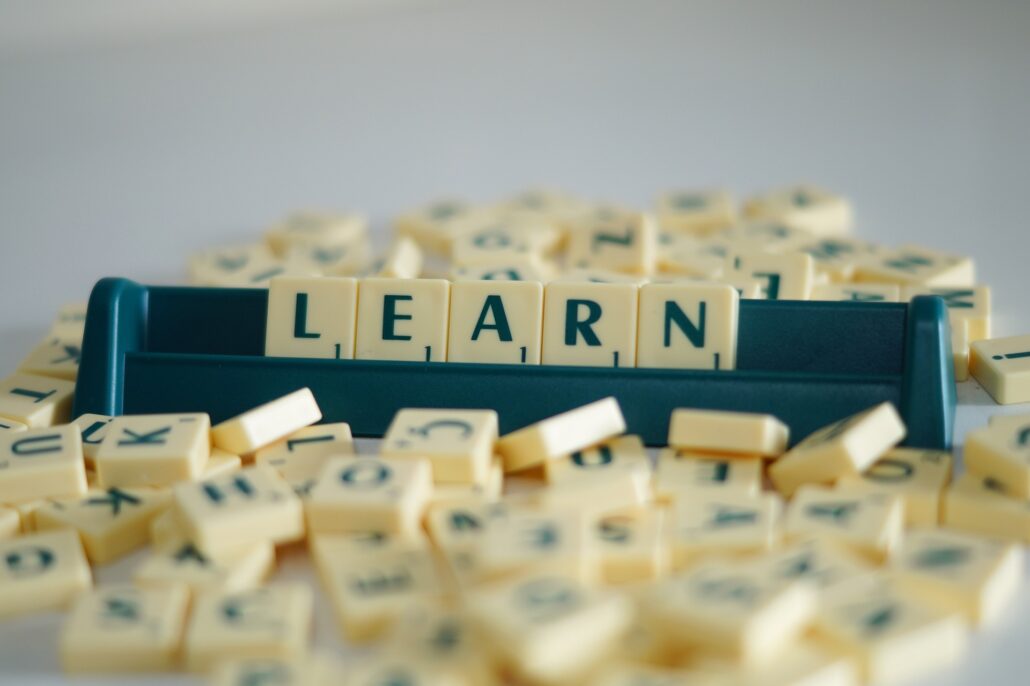
Word Builder is a word-forming game that is designed to improve vocabulary, spelling, and language skills.
It can be played alone or with a group, making it a versatile option for individuals or families. The objective of the game is to form words using a set of letter tiles or cards.
Players must use their knowledge of words, their language abilities, and their strategic thinking skills to form the longest or most words possible in a set amount of time.
Word Builder is a fun and engaging activity that can be adapted for different ages and skill levels, making it a great choice for families, classrooms, and language learners of all ages.
17. Word Jumble
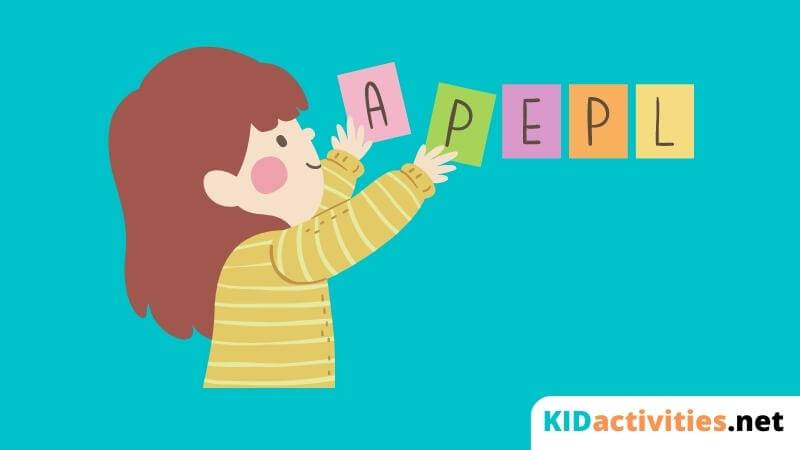
Word Jumble is a word-guessing game that can be played alone or with a group, making it an adaptable option for individuals or families.
The objective of the game is to unscramble a set of jumbled letters to form a word or phrase.
Players must use their understanding of words, their language abilities, and their critical thinking skills to unscramble the letters as quickly and accurately as possible.
‘Word Jumble is a fun and engaging activity that can be adapted for different ages and skill levels, making it a great choice for families, classrooms, and language learners of all ages.
Additionally, it is a simple game that requires no special equipment, making it easy to play anywhere, anytime.
18. Word Scavenger Hunt
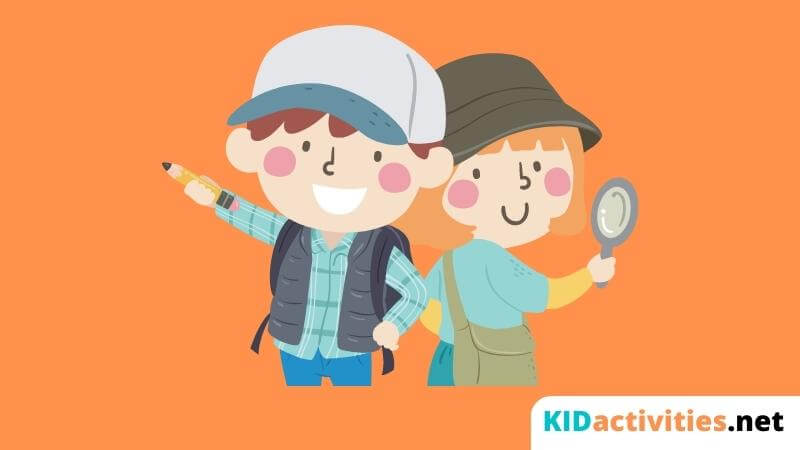
Word Scavenger Hunt is a fun word-finding game that helps improve vocabulary, spelling, and language skills.
It is usually played in a group setting, and participants are given a list of words to find within a set time frame.
The words can be hidden in various places, such as on posters, in books, or on signs, and players must use their observation and language skills to find them all.
Word Scavenger Hunt is a great activity for families, classrooms, or language learners, as it promotes teamwork, critical thinking, and problem-solving skills.
Additionally, it can be adapted for different ages and skill levels, making it a versatile and engaging option for players of all ages.
Whether you’re looking for a fun and interactive way to improve language abilities or just looking for a fun and educational activity to do with friends or family.
19. Word Connect
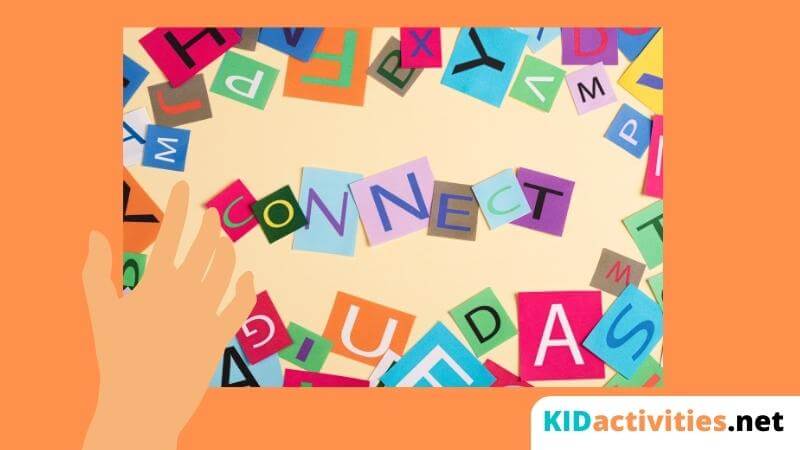
Word Connect is a word puzzle game that helps improve vocabulary, spelling, and language skills.
The game presents players with a grid of letter tiles and challenges them to form words by connecting the letters.
The game can be played alone or with others, and can be adapted for different skill levels, making it suitable for players of all ages.
Word Connect not only provides hours of entertainment but also helps to develop strategy and critical thinking abilities, as well as promotes problem-solving and critical reflection skills.
20. Word Mine
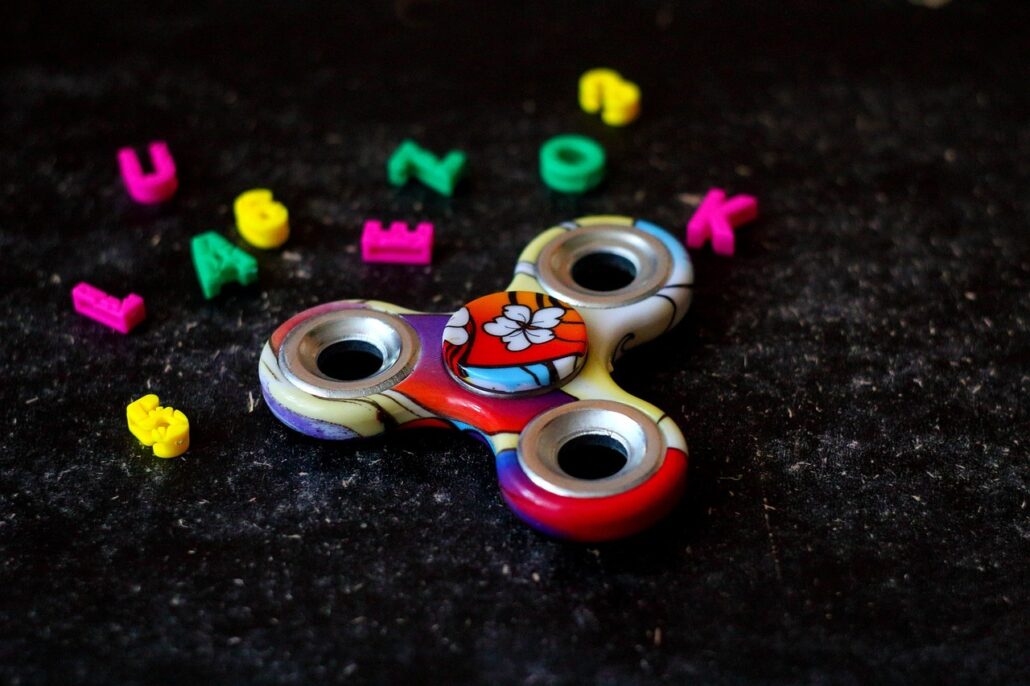
Word Mine is a word puzzle game that challenges players to find words hidden within a grid of letter tiles.
The game requires players to use their vocabulary, spelling, and language skills, as well as their critical thinking and problem-solving abilities, to uncover hidden words.
Word Mine can be played alone or with others, and can be adjusted for various skill levels, making it appropriate for participants of all ages.
Whether you’re looking to enhance your language skills or just want a fun and engaging word puzzle game, Word Mine is a wonderful choice.
21. Word Blitz
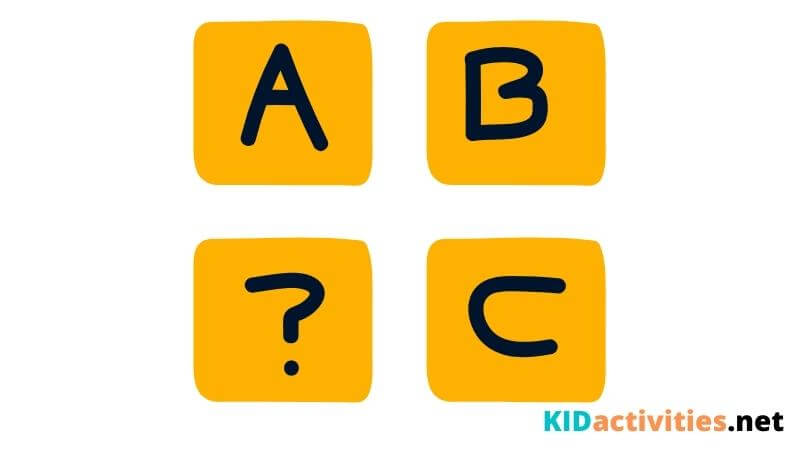
Word Blitz is a fast-paced word puzzle game that tests players’ vocabulary, spelling, and language skills.
In this game, players must quickly create as many words as possible from a set of letters within a limited amount of time. This game can be played alone or with others, and is a great way to improve language skills, challenge the mind, and have fun.
Whether you’re a beginner or a seasoned word game player, Word Blitz is sure to provide a fun and exciting challenge.
22. Word Merge
Word Merge is a word puzzle game where players have to join two or more words to create a new one.
It is a great way to improve vocabulary, spelling, and language skills while also developing strategy and critical thinking abilities.
The game has a simple yet challenging concept, making it appealing to players of all ages and skill levels.
In Word Merge, players are given a set of letters and have to use them to form new words.
The game can be played in different modes, including a time limit or a set number of moves.
The objective is to create as many words as possible, and the game gets progressively more difficult as the player progresses.
Word Merge is a fun and engaging game that can be played alone or with friends, family, or classmates.
It is also a great option for educational settings as it can be used as a tool for language learning and literacy development.
Additionally, the game can be played on a variety of devices, including computers, smartphones, and tablets, making it a versatile and accessible option for players of all ages.
23. Word Stack
Word Stack is a word-based puzzle game where the goal is to form words by stacking letter tiles on top of each other.
Players must arrange the tiles to create words of varying lengths, using strategy and critical thinking skills to score as many points as possible.
Word Stack can be played solo or with friends and family, making it a fun and educational game for individuals or groups of all sizes.
Additionally, the game can be adapted for different skill levels, making it a versatile and engaging option for players of all ages.
24. Word Twist
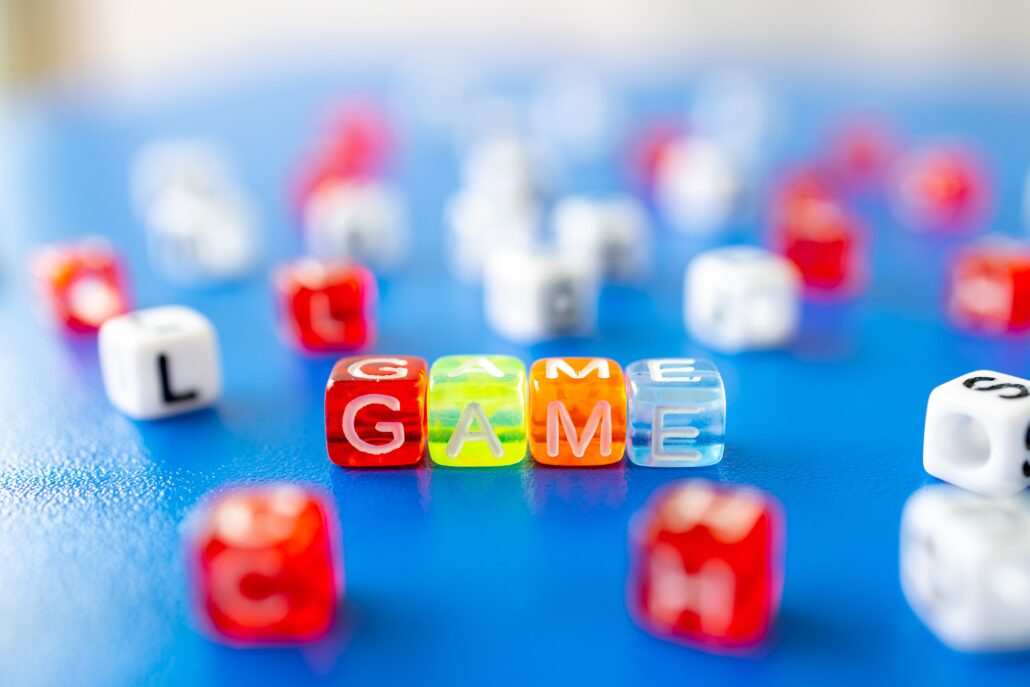
Word Twist is a word game that challenges players to find as many words as possible from a set of letters.
The game is designed to improve vocabulary, spelling, and language skills, as well as generate critical thinking and planning abilities.
It can be played by individuals or in groups, making it a fun and educational option for players of all ages and skill levels.
The game is also adaptable, as the set of letters can be changed for different rounds or for players with different skill levels.
25. Bananagrams
Bananagrams is a word game where players race against each other to build a grid of interconnected words.
The game comes with a set of letter tiles, and each player starts by taking some tiles and arranging them to form a grid.
The goal is to be the first player to use up all of their tiles, creating a grid of interconnected words. As players add more tiles, they may need to rearrange their existing words to make room for new ones.
The game is fast-paced and requires quick thinking, as well as a good vocabulary and knowledge of word patterns. Bananagrams is a great game for families and can be played by people of all ages.
26. WordWhizzle Search
WordWhizzle Search is a word puzzle game where players are given a set of letter tiles and must form as many words as they can from the letters.
The objective of the game is to create words in a grid by connecting adjacent letters.
The player must use all of the letters in the grid to complete each level. Points are awarded based on the length and difficulty of the words formed, with longer and more complex words earning more points.
WordWhizzle Search can be played alone or with friends, making it a fun and challenging game for individuals or groups of all ages and skill levels.
27. Popsicle Words
Popsicle Words is a word puzzle game that challenges players to make words using letter tiles.
The game is similar to classic word games such as Scrabble and Boggle, but with a twist: players race against the clock to make as many words as they can before time runs out.
To play, a player must swipe or connect letters in any direction to form a valid word.
28. Beach Ball Alphabet Game
The Beach Ball Alphabet Game is a fun and educational activity for children. The game is played using a beach ball, with each section of the ball representing a letter of the alphabet.
The object of the game is for players to throw the ball at each other and call out the letter on the section of the ball that is facing them.
This can be a great way to help kids learn the alphabet, improve their recognition of letters, and develop their hand-eye coordination.
It can also be a fun and active game for children to play outdoors and can be adapted to suit different ages and skill levels.
29. Word Garden
Word Garden is a word-based game where players join letters to make words.
It can be played solo or with multiple players, the objective being to score the highest number of points possible.
The game is played by forming words from a grid of letters, and players take turns placing letters to create words. Points are given based on the length and intricacy of the words formed.
Longer and more uncommon words yield higher scores and bonuses. Word Garden is an enjoyable and mentally stimulating game that sharpens vocabulary, spelling, and language skills and is appropriate for both children and adults.
30. Alphabet Balloon
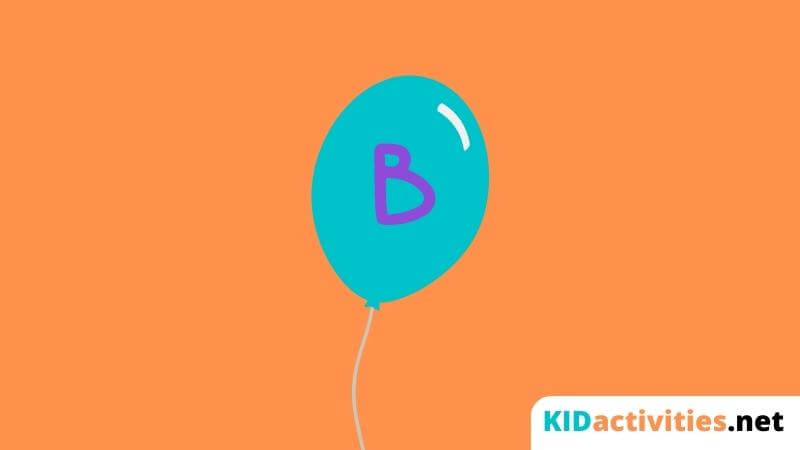
Alphabet Balloon is a game that involves popping balloons to reveal letters and then using those letters to form words.
The game is usually played with a group of people, with each player taking turns popping a balloon and using the revealed letter to form a word.
Points are awarded for each word formed, and the player with the most points at the end of the game wins.
Alphabet Balloon is a fun and interactive way to improve vocabulary, spelling, and language skills, and can be enjoyed by people of all ages.
31. Alphabet Maze
Alphabet Maze is a digital game designed to help children learn the alphabet and develop early reading skills.
The game typically involves navigating a maze loaded with obstacles and challenges, using the letters of the alphabet as the route.
The player must navigate a character through the maze, gathering letters in the right order to form words and complete challenges.
As the player progresses through the maze, they face increasingly complex challenges that test their knowledge of the alphabet, as well as their problem-solving and critical thinking skills.
Alphabet Maze is a fun and fascinating way for children to grow their literacy skills and improve their knowledge of the alphabet and early reading concepts.
32. Alphabet Memory
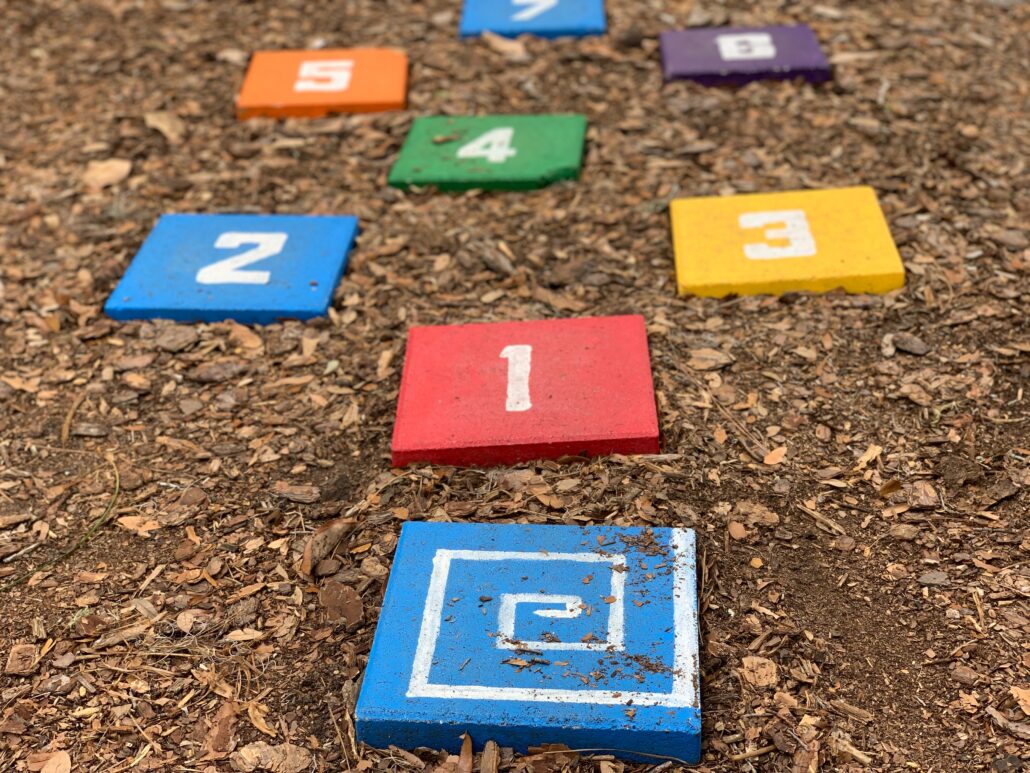
The Alphabet Memory Game is a game that helps to improve memory and language skills, especially for children.
It is a game where players match pairs of alphabet letters or images that describe words that begin with the related letter.
The game can be played with cards or on a computer or mobile device. The game starts with all cards face down, and players take turns flipping two cards at a time to try and find a match.
If the two cards match, the player keeps the cards and earns points. If they don’t match, the cards are flipped back over and the player must remember where each card is for the next turn.
The game ends when all pairs have been found, and the player with the most pairs wins. The game is an exciting and educational option for kids of all ages.
33. Color By Letter
The Colour by Letter game is an educational activity for children where they match a letter to its corresponding colour, typically using uppercase and lowercase letters.
The game involves coloring the letters of the alphabet according to the instructions given, either by following a colour key or by matching the letters to a corresponding colour.
The game is designed to help children recognize and differentiate between the letters of the alphabet, as well as improve their fine motor skills and hand-eye coordination.
34. Write Uppercase
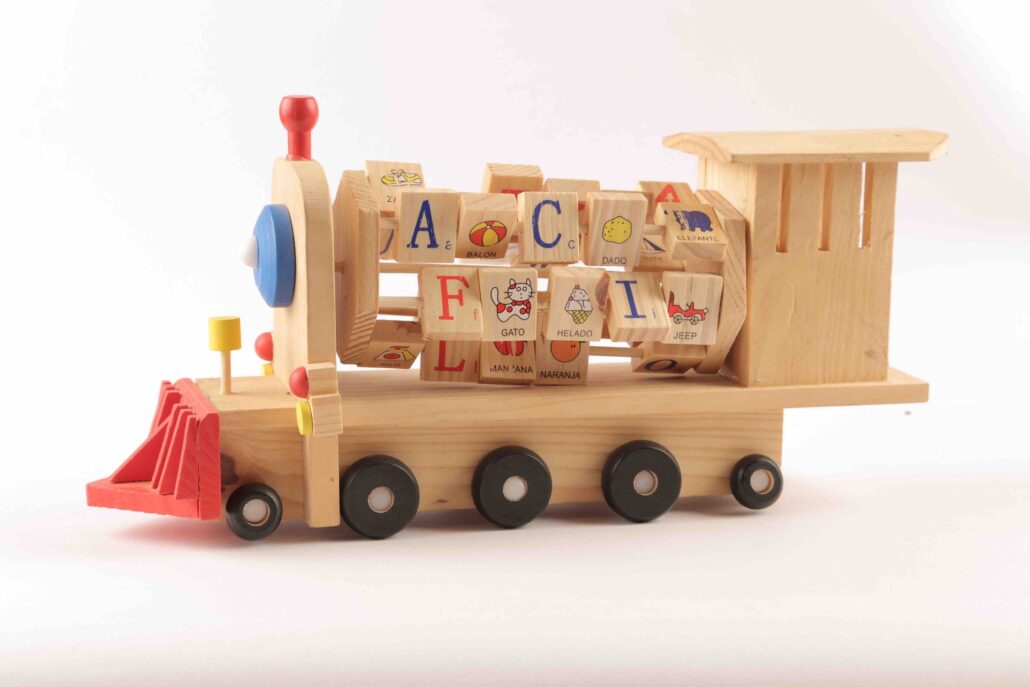
Write Uppercase is an educational game that focuses on helping children learn how to write uppercase letters correctly.
The game typically involves tracing the letters on a screen or paper, starting from a dotted line and following the correct stroke order.
The goal is to form the letters accurately, with proper sizing, spacing, and proportion. This game helps kids develop their letter-recognition abilities.
It is usually aimed at pre-schoolers and young children and can be played in a classroom or at home.
35. What Letter Is It
This letter recognition game is intended to help young children develop their ability to identify and differentiate between alphabet letters.
The game typically involves displaying a letter on a screen and then asking the player to identify which letter it is.
The game can be played with various levels of difficulty and may include letters presented in different font styles or mixed in with other symbols to increase the challenge.
The game is often used in early childhood education settings as a tool to help kids build their foundation for reading and writing skills.
36. Alphabet Race
Alphabet Race is a game that helps children learn the alphabet and enhance their recognition of letters and letter sounds.
The game is typically played with numerous players and involves racing to identify and say the letters of the alphabet in order.
Players can use their knowledge of letter sounds, names, and shapes to identify the letters quickly, and the first player to correctly identify all the letters of the alphabet wins the race.
Alphabet Race is a delightful and interactive path for kids to learn the alphabet and develop their language and literacy skills.
37. Magnet Letter Fishing
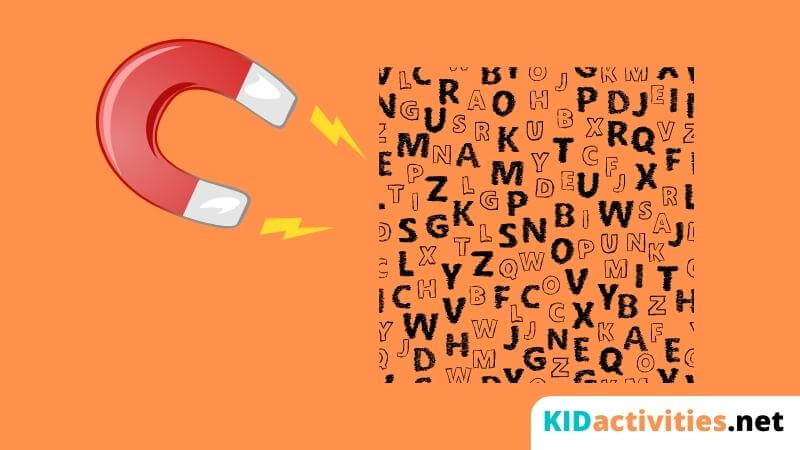
Magnet Letter Fishing is played with a toy fishing rod and magnetic letters that can be attached to the end of the rod.
Children take turns fishing for letters and then identifying the letter they have caught, either by naming the letter or making the corresponding sound.
The game is typically played with the child’s parent or teacher and can be adapted for different ages and skill levels.
Magnet Letter Fishing is a fun and engaging way to encourage children to learn and practice their alphabet skills.
38. Pirate Vowel Game
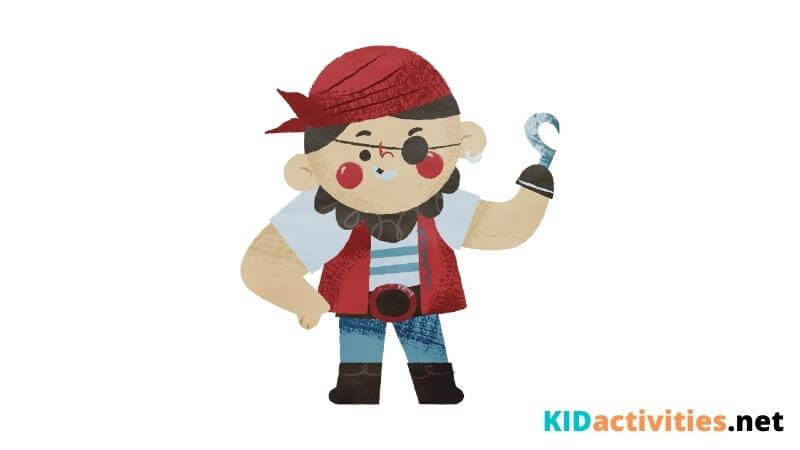
Pirate Vowel Game is an educational game designed to help kids learn and practice their vowel sounds.
The game is generally played with a group of magnetic letters, a board, and a fishing rod, and involves catching vowels from the board and putting them into words.
The goal is to collect as many words as possible using the vowels caught, and players take turns fishing for vowels and adding them to the words they’ve formed.
Points are awarded for forming words, and players can earn bonuses for forming longer words or using rare vowels.
39. It Begins With
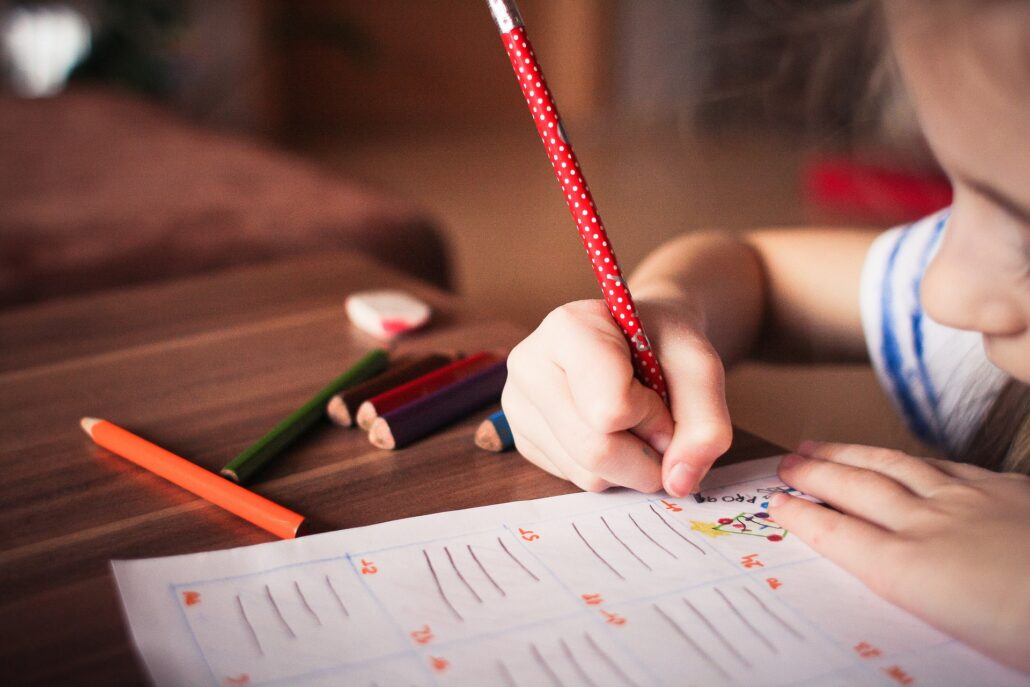
“It Begins With” is a letter game that challenges players to think of words that begin with a certain letter.
The game can be played in groups and typically involves taking turns to come up with words that start with the specified letter.
The letter can be chosen randomly or chosen by the players, and the game can be made more challenging by setting a time limit or by choosing a specific category (such as animal names or words related to a certain theme).
The goal of the game is to see who can come up with the most words that begin with the chosen letter.
“It Begins With” is an educational game that can help improve vocabulary, spelling, and language skills, making it a great option for both kids and adults.
40. Alphabet Monster
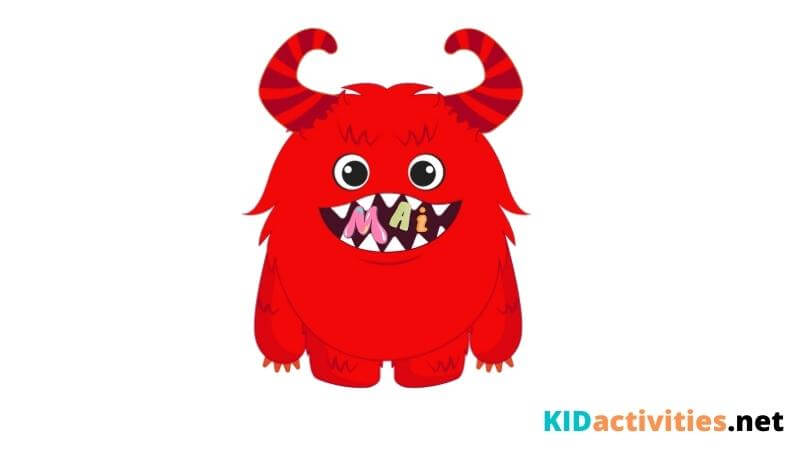
Alphabet Monster is a game that helps kids learn the alphabet. The game involves creating a monster puppet or a similar visual representation and then playing a word-guessing game with the monster.
The monster is only fed letters if the player can correctly say the name or sound of the letter.
The goal of the game is to feed the monster as many letters as possible, and players can score points for each correct answer.
Alphabet Monster is designed to be interactive, engaging and memorable, encouraging kids to practice their letter recognition and pronunciation skills in a fun and playful way.
41. Reading Hop
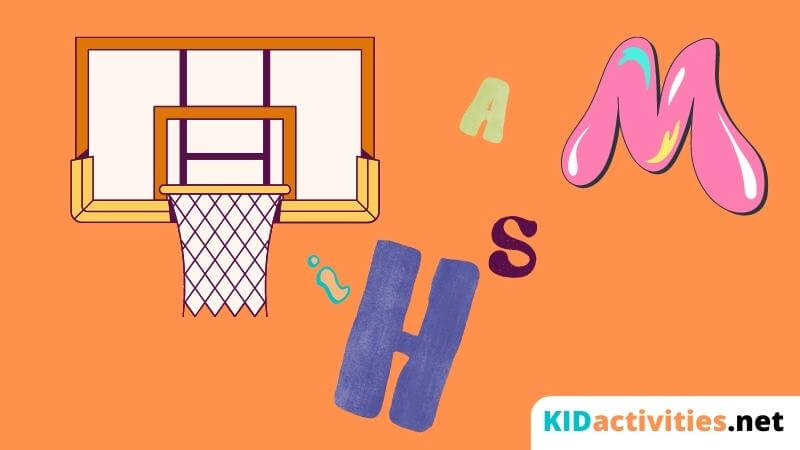
Reading Hop is an educational game that helps kids learn letters through physical activity. The game involves kids hopping from one letter to another, intending to identify the letters by their name or sound.
The game can be played indoors or outdoors and provides a fun way for kids to get active while learning.
The game can be played alone or with a group of kids, and it’s a great option for kids of all ages.
The objective is to identify the letters, and kids receive points for correct answers.
This game is a fun way to help kids develop their reading and language skills, as well as improve their physical coordination and fitness.
42. Alphabet I Spy
Alphabet I Spy is a variation of the classic game of “I Spy,” where players search for objects based on a given clue. In this alphabet version, players search for items that start with a specific letter of the alphabet.
One player gives a clue about an item they have chosen, such as “I spy with my little eye something that starts with the letter A,” and the other players try to guess what the object is.
The game continues with different letters and items until all letters of the alphabet have been covered.
This game is a fun way to help kids recognize and associate letters with different objects and improve their vocabulary.
43. Lego Spelling
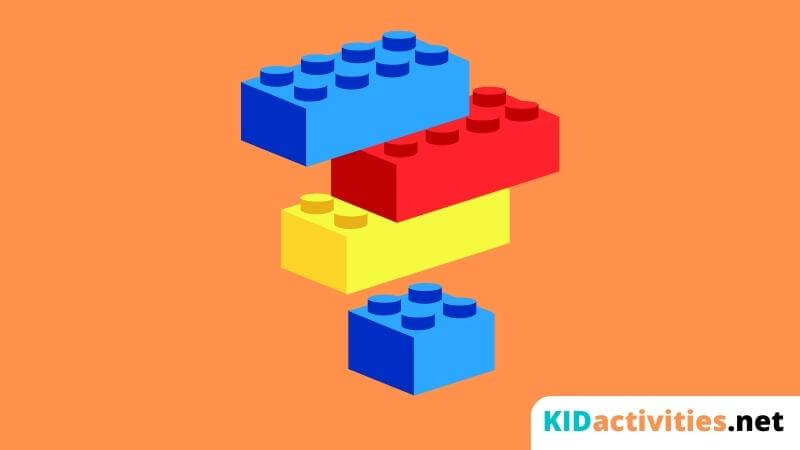
Lego Spelling is a game that utilizes duplex legos with letters on them to help kids practice spelling and sounds.
In this game, players use the legos to build words by stacking the letters on top of each other.
The game can be played in a variety of ways, such as making a word and then having others guess it or using the legos to spell out words that are called out.
This game combines hands-on play with learning, making it a fun and interactive way for kids to improve their spelling skills.
44. Letter Lacing
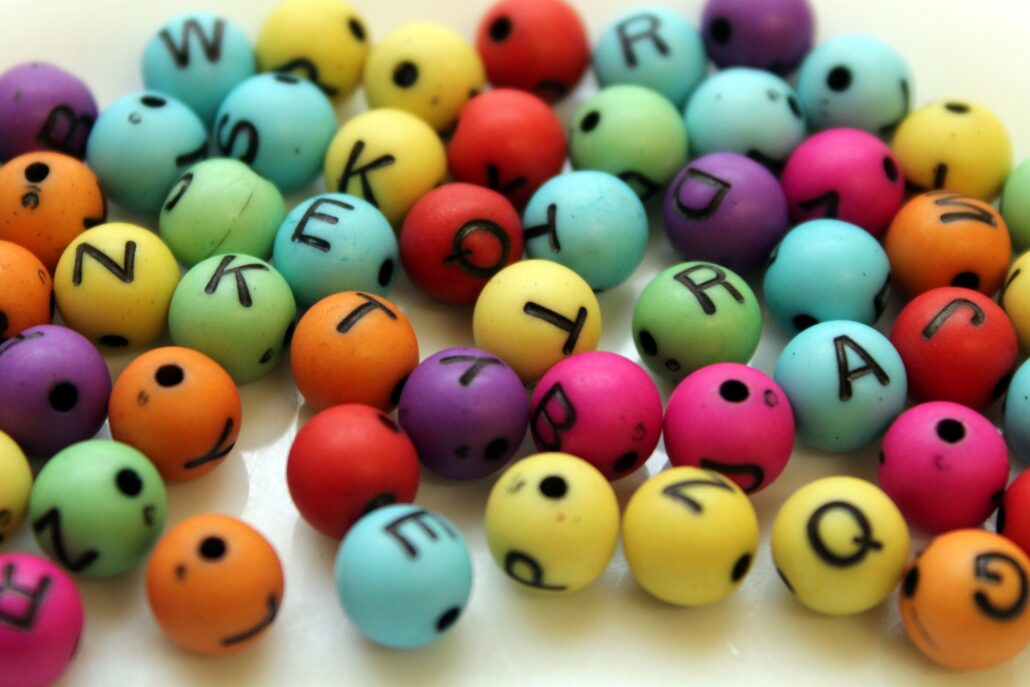
Letter Lacing is a fun and educational game that helps children develop fine motor skills while also promoting early literacy.
The game involves using lace or string to string together letter-shaped beads, cards, or foam pieces. The aim is to thread the string through the holes in the letters in order to spell out words or names.
This activity helps children to learn the letters of the alphabet and develop hand-eye coordination, dexterity, and concentration skills. It can be played solo or with a group and is suitable for children of all ages.
45. Disappearing Letters
Disappearing Letters is a game designed to help kids learn how to write letters.
The game works by having the child trace over the letters using a special pen or marker.
The ink from the special pen disappears after a short period of time, giving the child the impression that the letters are disappearing.
This can motivate kids to practice tracing the letters more frequently. The game can be used to practice writing both capital and lowercase letters, and it can be adapted for various skill levels.
46. Bang Game
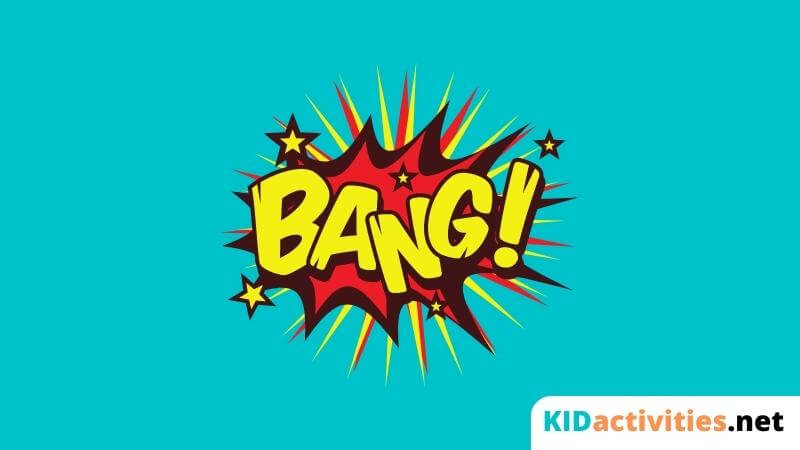
Bang is a letter identification game that is designed to be fun for kids. The objective of the game is to recognise letters, usually from the alphabet, as quickly as possible.
It can be played by one or more players and typically involves a deck of cards with letters on them.
The game can be played in different ways, such as having players race to identify the letter, or taking turns naming a letter and having the others guess the letter.
The goal is to be the first to identify the letter or to identify as many letters as possible within a set amount of time.
Bang is a fun and engaging game that can help children improve their letter recognition skills, making it a great option for young children and early learners.
47. Make Pretzel Letters
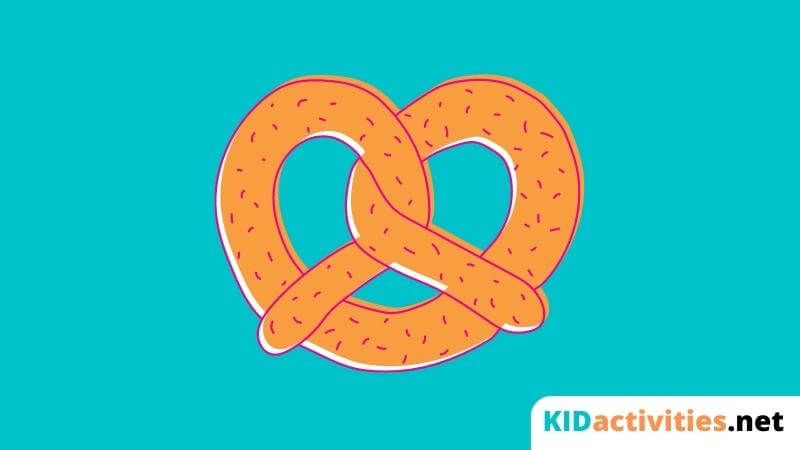
Make Pretzel Letters (also known as “Soft Pretzel Letters”) is a hands-on and interactive game that helps kids learn their letters while having fun.
In this game, kids work with soft pretzel dough to form letters of the alphabet. They use their hands to mould the dough into the shape of each letter and then bake the pretzels in the oven.
The sense of touch and taste both come into play as they play with the dough and enjoy the finished product.
By forming letters with their hands and learning to recognize the shape of each letter, kids can improve their letter recognition skills and overall literacy development.
48. Sensory Bins with Letters
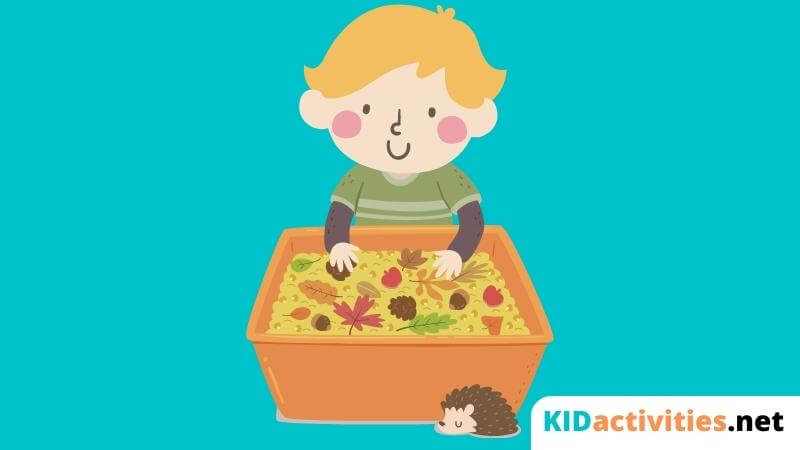
Sensory bins with letters is a learning game where kids can explore and learn letters through touch and sensory play.
The activity involves creating a sensory bin filled with materials such as rice, sand, beans, or water, and hiding letters within the bin.
Children can then use their hands to dig and search for the letters, practising letter recognition and strengthening fine motor skills.
This type of play-based learning is engaging and helps children retain information while having fun.
It can also be used as a tool for practising letter sounds, matching upper and lowercase letters, and building words.
Overall, sensory bins with letters is an interactive and effective way for kids to learn and strengthen their alphabet skills.
49. Seek-N-Find Alphabet
Seek-N-Find Alphabet is a letter recognition and search game that helps kids develop their letter identification skills.
The game involves a plastic tube (or a water bottle) filled with different letters, and kids have to search for specific letters by looking through the tube.
It is similar to the classic “I Spy” game but with a focus on letters instead of objects.
The goal of the game is to find the designated letter as quickly as possible.
This fun and interactive game help improve visual perception and hand-eye coordination and provides a fun and educational activity for kids to enjoy.
50. Letter Formation Fun
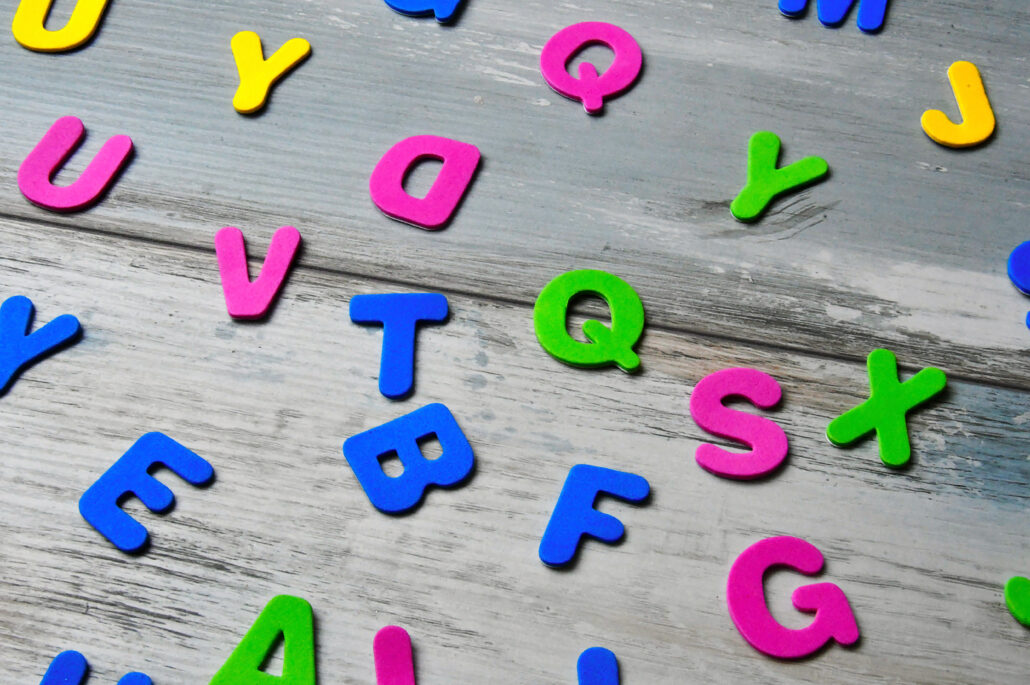
In this game, kids use rice and paint to feel their way through the process of writing.
The game is designed to help children develop the fine motor skills needed to form letters and improve their handwriting.
By using different textures and materials, kids can experience the formation of each letter in a unique and engaging way.
This game is great for young children who are just starting to learn how to write letters, and it can be a fun and educational activity for families or classrooms.
51. ABC Flashcards
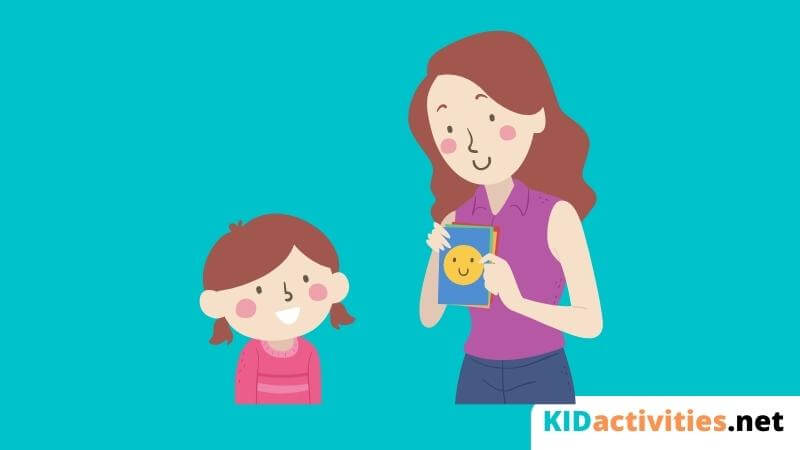
ABC Flashcards is a simple educational game that uses cards with letters of the alphabet printed on them.
The game can be used in a variety of ways, such as flashcard basketball, where players attempt to throw the cards into a basket or similar target.
The game helps kids recognize and learn the letters of the alphabet. The cards can be easily downloaded and printed, making it a convenient and accessible educational tool.
The game can be played by kids and adults, and can help improve alphabet recognition and visual and spatial awareness.
52. Collect Alphabet Treasures
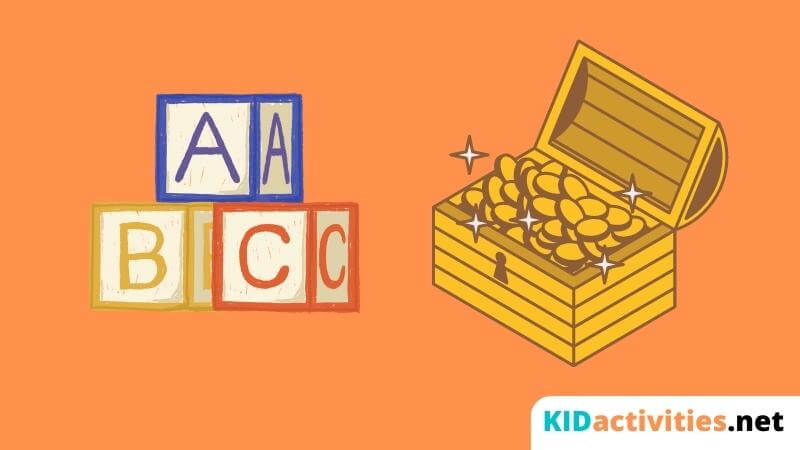
Collect Alphabet Treasures is a game designed to help children learn and recognize letters of the alphabet.
In this game, children are tasked with finding objects or treasures that start with each letter of the alphabet.
For example, for the letter “A”, children might search for an apple, ant, or another item that starts with “A”.
The objective of the game is to collect as many alphabet treasures as possible and to reinforce letter recognition and early literacy skills.
53. Make a Sun-Powered Letter Puzzle or DIY Shape Puzzle
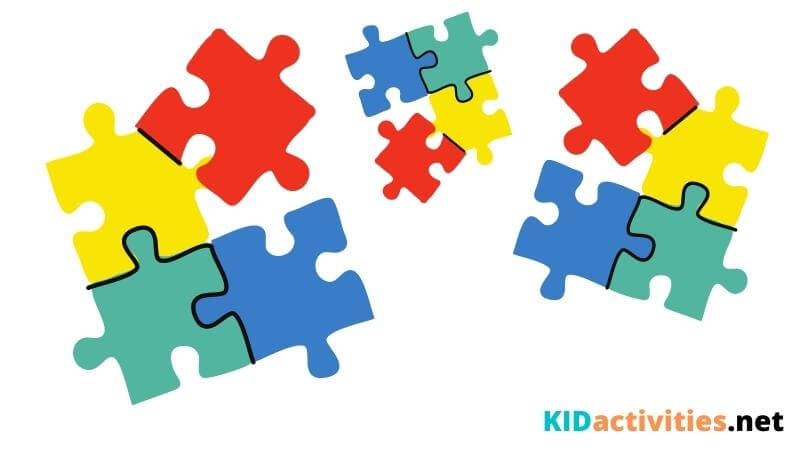
Make a Sun-Powered Letter Puzzle is a game that involves making a DIY puzzle using alphabet letters.
The game can be played inside or outside, and involves using the sun to create a fun matching activity.
The players are required to arrange the alphabet letters in the correct order, to make a puzzle.
This game is designed to improve problem-solving skills and visual memory, while also providing an opportunity for children to learn the alphabet in a fun and interactive way.
The game can also be made without the sun, by using a different method to create the puzzle.
Learning the alphabet and letter recognition is an important foundation for future reading and writing skills.
The games and activities mentioned in this article provide fun and engaging ways for children to learn their letters and develop their language skills.
From sensory bins and letter lacing to flashcard basketball and sun-powered letter puzzles, there is a wide range of activities that can cater to different learning styles and preferences.
It is important to remember that learning should always be enjoyable and interactive, and the games and activities listed in this article provide just that.
Whether it is through play and exploration or through hands-on interaction, children will have a blow while learning the alphabet.
It is your duty to provide opportunities for children to grow and develop their skills, and these games and activities can be valuable tools in achieving that goal.
